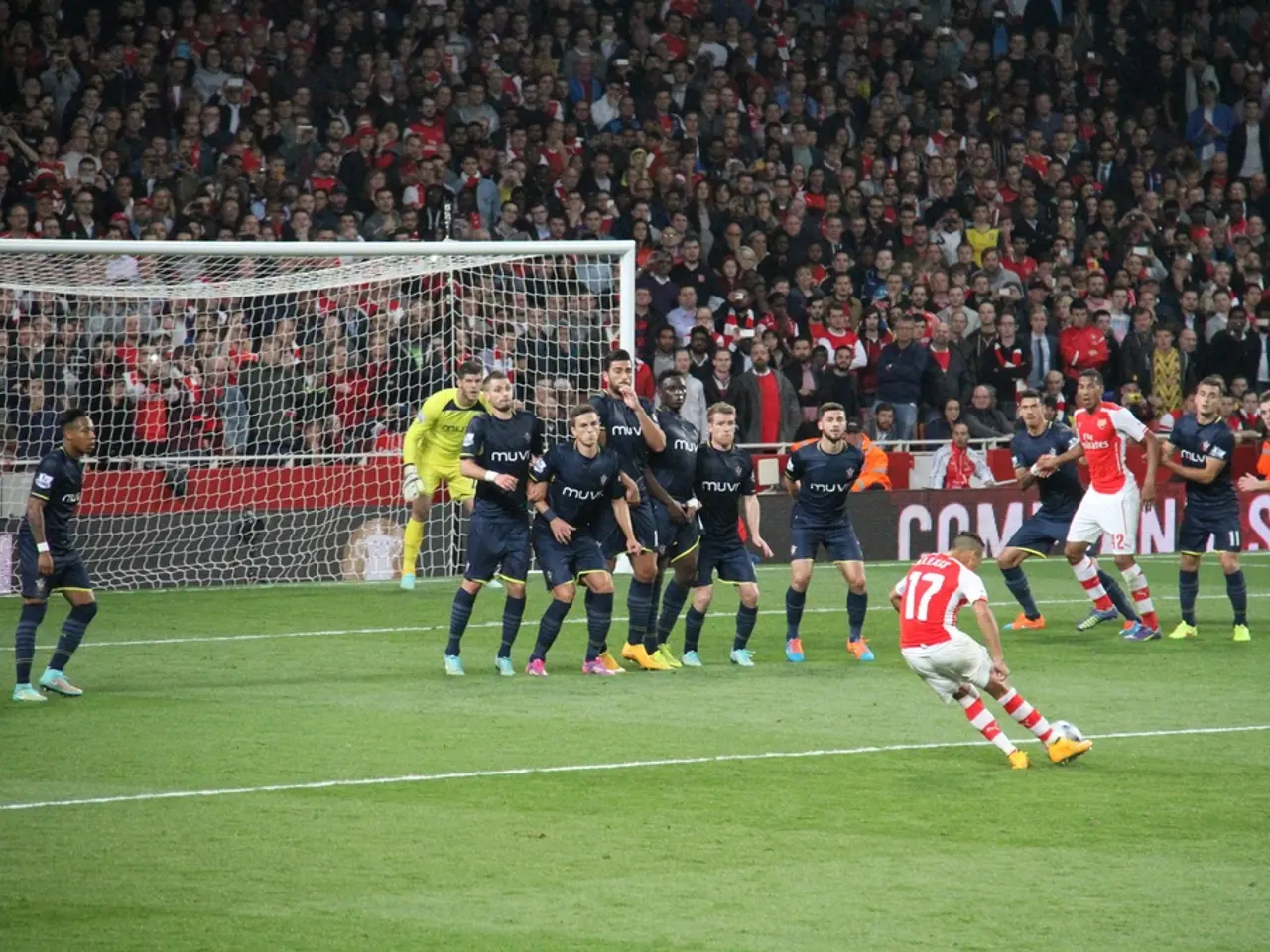Persisting issue of racism causing concern: DFB alarmed by instances in cup matches
In the world of football, the fight against racism and discrimination is a pressing issue. Recent incidents in Germany, specifically at Lok Leipzig and other DFB-Pokals games, have highlighted the need for stricter enforcement of anti-discrimination rules.
FIFA, the governing body of world football, has reaffirmed its zero-tolerance policy on racism. They are pushing for stricter enforcement, stronger collaboration among governing bodies, clubs, and law enforcement agencies, and have established the Players’ Voice Panel. This initiative aims to amplify players’ perspectives and support those affected by racism, including ongoing dialogue with the DFB to strengthen safeguards.
The German Football Association (DFB), led by President Bernd Neuendorf, has publicly condemned racism and launched investigations into incidents of racial abuse during German matches. The DFB states that "racism and discrimination, hatred and exclusion have no place in football," emphasizing their commitment to diversity and respect. They work closely with FIFA and uphold shared values to support targeted players.
German football clubs have been part of these broader efforts. They collaborate with the DFB and FIFA and respect protocols that temporarily halt games to address abuse when it occurs. Clubs are increasingly engaging with community and fan education programs to foster diversity and inclusion, though specific club-level initiatives from the current year are less detailed in the sources. Matches have seen pauses to manage reported incidents and support victims, showing active on-field responses.
The incidents in Leipzig involved the use of the "N-word" and saw Schalke player Christopher Antwi-Adjei being booed every time he touched the ball. In Potsdam, the perpetrator was identified, and fans were heard chanting "Nazis out." Antwi-Adjei notified the referees about the racist abuse he received from the stands and filed a police report.
These incidents have raised concerns among the DFB and FIFA due to their societal implications. Lok Leipzig, a fourth-tier club, has apologised for the racist abuse that Antwi-Adjei experienced from a spectator.
The national cup competition has brought these incidents into the spotlight, as they might have gone unnoticed in lower league games. It serves as a reminder that racism in football stadiums remains prevalent, even outside the glitz and glamour of the Bundesliga.
The ongoing criticism regarding the effectiveness and enforcement of these measures suggests the need for institutional bravery and permanent systemic reforms beyond campaigns and promises. The fight against racism in football is a continuous journey, and the focus remains on investigations, player support, zero tolerance enforcement, and collaborative frameworks between FIFA, the DFB, and clubs.
- The European leagues, such as the Champions League, are encouraged to uphold FIFA's zero-tolerance policy on crime and justice issues like racism and discrimination, as the recent incidents in Germany indicate that such issues are prevalent in general-news areas, even outside the top leagues.
- During the sports season, particularly in football matches, there is a growing emphasis on leveraging the Players’ Voice Panel and community education programs to ensure that the players feel heard and supported when dealing with cases of racism, following the various reported incidents in Germany's football stadiums.
- As the incidents in Leipzig and Potsdam serve to highlight, each football club is responsible for cultivating a respectful and inclusive environment within their fanbase, and they would benefit from strengthening their collaboration with FIFA and the DFB in addressing crime and justice issues, ensuring that their actions demonstrate a genuine commitment to the values they profess.








